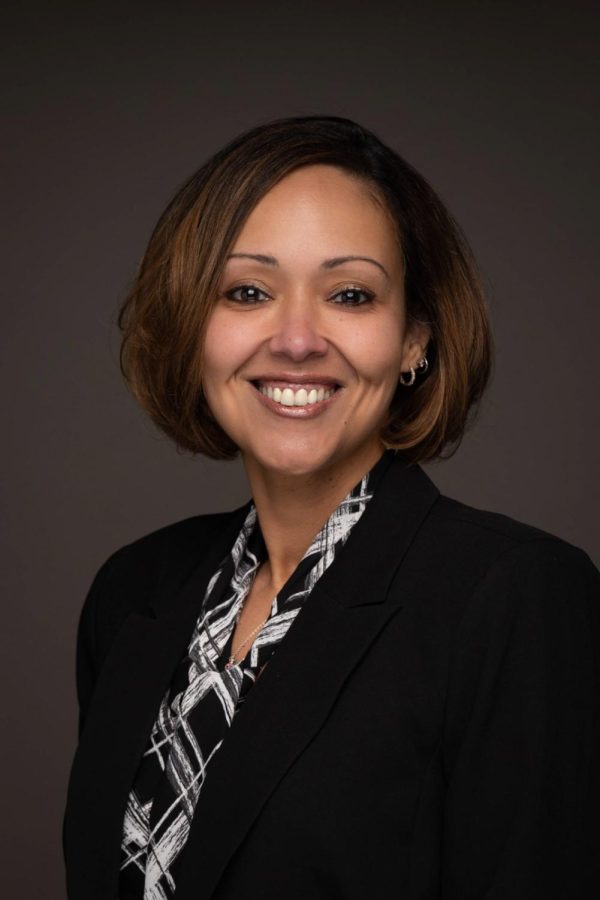OMA Social Justice Centers names new assistant Vice President, advocates for inclusion
Jan 23, 2023
The Social Justice Centers in the Office of Multicultural Affairs (OMA) at Grand Valley State University welcomed their new assistant Vice President at the beginning of this year, Alisha Davis. With her new role, Davis is in charge of making sure that all students feel advocated for, no matter their background.
In 2010, Davis started her position as an assistant professor of allied health sciences at GVSU after previously working as an adjunct and visiting professor for two years. In 2019, she was named associate professor and program director.
Throughout her work in health and science, Davis worked to promote social justice.
“I actually always worked on diversity, equity and inclusion, but I focused on health disparities,” Davis said.
Davis later moved on from her work in allied health sciences to advocate for marginalized students. After working with students for a few years on several initiatives such as the President’s initiative, Davis was given her current title.
Social Justice Centers and the OMA work to create a more inclusive community at GVSU. As Assistant Vice President of Social Justice Centers, Davis has many obligations. She said that some of the most important work she does is making sure that students belonging to historically marginalized ethnicities have “safe spaces and opportunities, equity and a sense of belonging at GVSU.” She wants to make sure that individuals know that they aren’t alone, that there are people ready to help.
These programs aid the GVSU community at local and national levels. The Social Justice Centers and OMA make it their job to be a resource for all of the historically marginalized peoples on campus. Some groups on campus include Black Excellence, Laker Familia and Asian Student Union, among others.
These groups and clubs make sure that student needs are being met and provide a space to further community.
If students need help they can go to these centers or offices for support. There are staff members ready to talk, listen and offer resources to students in need.
“There’s a talented bunch of staff that truly are dedicated and engaged and really want to be a success for historically marginalized populations,” Davis said. “It creates spaces, programming and opportunity for the students to thrive in.”
The centers and OMA oversee many popular events that bring attention to these groups of minority students. Examples of these events include Replenish, Support for Women and Fostering Laker Success. Replenish is a resource for students who are facing food insecurity or are unable to afford healthy food to have access to meals.
The main focus of the Social Justice Centers and OMA is inclusion and unity, especially in today’s society.
“Now more than ever,” Davis said, “With angst in the community, our help is needed.”
























